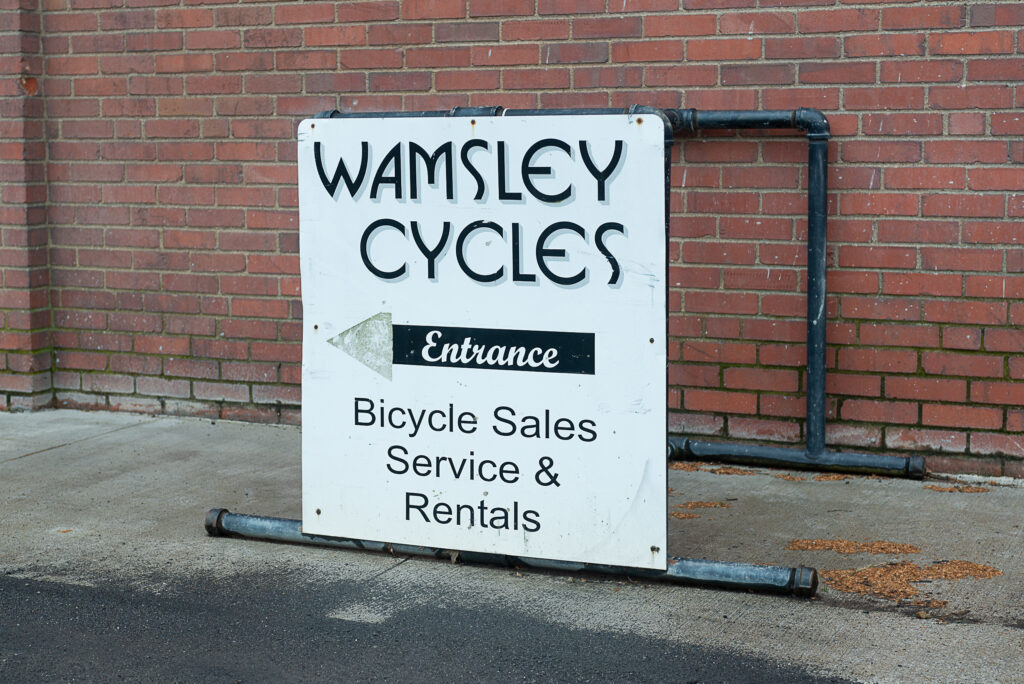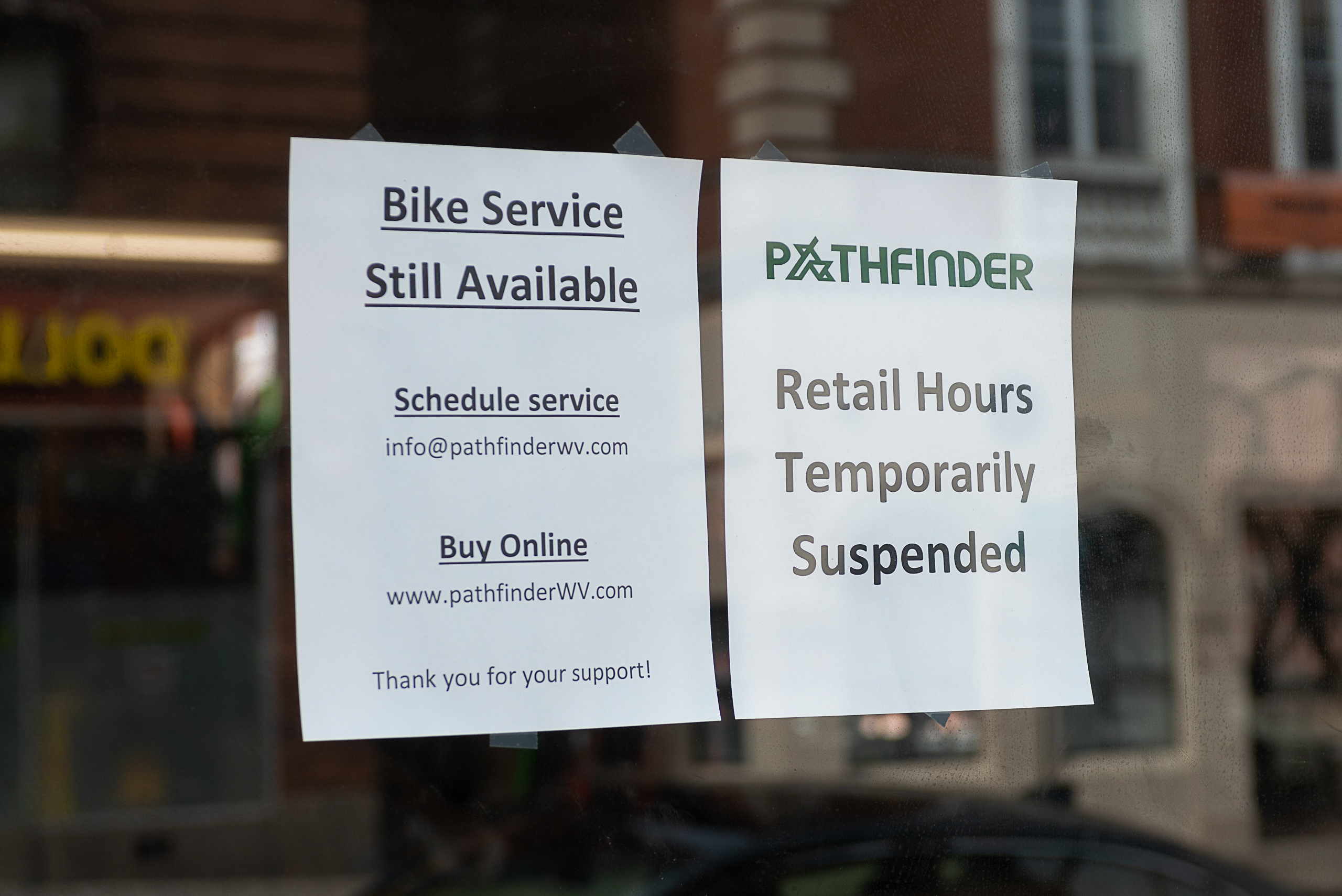“Small businesses are the backbone of our economy.”
It’s a simple phrase that politicians love to hammer into our minds, but currently, our backbone is straining in the wake of the COVID-19 pandemic. A lot of our nation’s vertebrae are nearing a breaking point, even if others are still holding strong.

Take outdoor recreation stores for example. While big names like REI have temporarily closed their doors and focused all efforts on fulfilling online orders, some small names are following suit, such as Pathfinder in Morgantown which has gone 100% online, barring bike repairs. These stores in larger markets can move to that model, but when an economy is primarily driven by tourism things can get hairy.
Davis is one of those towns. Nestled on the Blackwater River in the mountainous Tucker County, the tiny town of 660 people depends heavily on folks traveling to Canaan Valley, Dolly Sods, Blackwater Falls State Park or other recreation areas, and it’s there that small business thrives in times like now. But with campgrounds closed and restaurants only open for takeout across the state, Davis is facing a crisis. Some places have managed to stay open to provide services, however, such as Blackwater Bikes.
“We’ve kinda gone back and forth on how we should best proceed because are so many unknowns,” store owner Rob Stull said while sitting outside his shop waiting on customers to arrive. “I want to try and be there for the locals to provide service – we’ve done some sales [and have] sold some bikes as people are coming in – and I’m trying to at least be in the shop a few hours every day.
“When you start talking to folks and suggesting that they don’t come here, folks get offended. It’s a balance for us on being able to be here and serve folks, but also recognize that I don’t want to be open for people coming from out-of-state right now. You get defensive. We’re just trying to do the best we can right now.”
The store currently hosts just two employees, Stull, and another worker, but during the summer there are four workers. Though small staffed in the spring, in a normal functioning economy in March and April Davis sees students on spring break and vacationers trickling in. While Blackwater Bikes sees both groups of people as well, April is also the time of the year that Stull refers to as “barn bike season.”
“Everyone’s pulling their bikes out of the barn to get worked on after it’s been sitting all winter,” he said. “That’s the business we’re still trying to tap into, but there are people who don’t want to bring their bikes out. So we’re losing a little bit. Really, it’s ultimately the foot traffic we’re [not] seeing.”
Yet even with a decline in foot traffic and overall sales, people are pitching in as much as possible to help keep Blackwater Bikes afloat whether they’re locals or from as far away as Colorado.
“There are people reaching out who know we’re going through hard times that want to be able to support us,” Stull said. “We’re having trouble trying to pay the bills like many people are at this time, so you really start to see the folks who want to support you and see you succeed. I’ve had folks as far away as Colorado reach out and want me to ship them bike jerseys, or customers of ours who are second-home owners here who live in Baltimore that have reached to just buy gift cards to keep us alive. That goes a far way, man. You really see who wants to help you out.”
Even though Stull appreciates any business, he’s been vocal for the last few weeks that now isn’t the time to be a tourist, even if it hurts his business.
“I take the stance that, ‘Hey, stay where you are,’” he said. “We certainly recognize the support that tourism gives us and we wouldn’t be here without it, but we’re not sure this is the best time to go on vacation. We’re not trying to be anti-tourism, it’s just that now isn’t the time to be a tourist. We’d certainly welcome people back to the area when the stay at home order ends and people go back to being healthy again.”
Wamsley clicking into high gear
An hour and a half north on Beechurst Avenue in Morgantown, Wamsley Cycles is operating relatively well amid the virus outbreak.

A namesake in the Mountain State, Chip Wamsley has owned and operated the bike shop for 38 years. He and his business have weathered countless calamities such as the 1973 Yom Kippur War and 1979 Iranian Revolution oil crises – which actually helped his business – and stock market crashes but has never faced something of this magnitude.
Still, business is good for the well-known cycling guru.
“We closed for two weeks, but before we were trying to get as many repairs in as possible and had almost 100% pickup,” Wamsley said. “Which is unusual because a lot of times, the people who are proactive and [getting repairs done] before spring is really here, they leave them for 5-6 weeks and our system clogs up. It’s amazing that when we said we were closing for an indeterminate amount of time, everyone picked up those bikes. In 38 years that’s the first time that’s ever happened.”
Things have certainly changed, though. Wamsley has cut store hours from 10 a.m.-2 p.m. six days a week, has gone to a curbside-pickup model so people aren’t congregating in his store and is no longer providing emergency flat-tire repairs. This allows his mechanics to work uninterrupted on scheduled repairs while his web presence allows other purchases to fill in the gaps. For the foreseeable future, this is the model he’s sticking with.
Luckily for Wamsley, his business isn’t reliant on tourism like Blackwater Bikes. But even if Morgantown’s economy was primarily driven by tourists, Wamsley thinks his business would still be doing well.
“I’m kind of the bike shop for the state,” he said. “I’ve been doing it for so long and built handmade frames for over 25 years, so we draw people from all over the state. We have a pretty broad area, and there’s not a whole lot between here and Pittsburgh so we tend to get all of that Washington and Greene County, Waynesburg, Masontown, all of those small [Pennsylvania] communities up in that area, that brings their bikes to us. We even get people from between Cumberland and Oakland.
“The response we’ve gotten is that people feel much more comfortable and have gotten used to curbside stuff. I think everyone’s down with how the system is and wants to try to flatten the curve.”
TWEET @ASpellman_DPost




